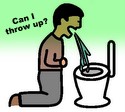Is there a genetic reason many of us do lousy on T4?
 Last May, a very interesting article appeared in the May 2009 issue of the Journal of Clinical Endocrinology and Metabolism, titled For Some, L-Thyroxine Replacement Might Not Be Enough: A Genetic Rationale and presented by Endocrinologists in Bristol in the UK. It’s accompanied with an editorial by Endocrinologists Brian W. Kim and Antonio C. Bianco.
Last May, a very interesting article appeared in the May 2009 issue of the Journal of Clinical Endocrinology and Metabolism, titled For Some, L-Thyroxine Replacement Might Not Be Enough: A Genetic Rationale and presented by Endocrinologists in Bristol in the UK. It’s accompanied with an editorial by Endocrinologists Brian W. Kim and Antonio C. Bianco.
This is the same article referred to by Endocrinologist Dr. Gary Pepper on the last Thyroid Patient Community Call on Talkshoe.
Basically, the article states that a genetic variation in the enzyme that converts T4 to T3, deiodinase D2 (also called Type 2 Deiodinase, or 5′-Deiodinase), may be responsible for why so many thyroid patients don’t do well on Synthroid, Levoxyl, levothyroxine, etc, and in turn, do so much better on natural desiccated thyroid like Naturethroid, Erfa’s Thyroid, or the combined synthetic T4 and synthetic T3 (Cytomel).
In other words, where some may have a strongly functioning deiodinase D2 enzyme which converts T4 to the active T3 well, others may have a modified deiodinase D2 enzyme, causing less optimal conversion.
In the Editorial, the two Endos Kim and Bianco explain the reality of “polymorphism”–a condition in nature in which changes or variations occur, and in one patient from another, a change in the DNA. As related to conversion of T4 to T3, some thyroid patients have a less effective deiodinase D2 enzyme in the conversion of T4 to T3. Specifically, there is a common variant of the gene, threonine (Thr) 92 alanine (Ala), and it results in decreased D2 enzymatic activity.
The study proposes that this alteration from polymorphism occurs in 16% of those studied, and concludes that the majority don’t have this problem, and thus, “most do fine on T4-only medications”. But 16% do have this problem and need the combined therapy of T4 with T3.
Bristol was also mentioning this reality in 2004 here, even if they thought it was as low as 5%.
As Dr. Pepper hinted, this study could do wonders to open the eyes of Endocrinologists about the use of desiccated thyroid, or at the very least, about combined hypothyroid treatment with synthetic T3 added to synthetic T4. And I’m glad for that when so many patients have found Endocrinologists to be narrow-mindedly stuck on Synthroid or other T4-only thyroxine products.
Of course, informed thyroid patients know this is only a baby step in the right direction, even if a good one! So we’ll rejoice for this study, and watch for more progress from the medical community and Endocrinology in general. For example, saying that “most do fine on T4” simply because they have may a non-variation might be proven wrong as physicians take the time to really look at those “fine” patients, especially as they age and symptoms of an inferior treatment do pop up. And though the combination of synthetic T3 with synthetic T4 definitely gives better results, thyroid patients who then moved to desiccated thyroid with it’s T4, T3, T2, T1 and calcitonin report even better results and clinical presentation! We’ve also learned that the TSH lab test absolutely sucks when it comes to diagnosis and treatment. Read TSH Why It’s Useless, or see even more detail in Chapter Four of the STTM book, titled Thyroid Stimulating Hooey.
And finally: do thyroid patients really believe that problems with T4-only treatment is simply due to a genetic abnormality or variation? Maybe. But isn’t it funny that a healthy human thyroid does NOT depend solely on conversion, but also gives direct T3. hmmmmmm
P.S. Patients also know that the use of the supplement Selenium helps with conversion, by the way, but has never stopped our first-hand knowledge that desiccated thyroid rocks!

 If you have been keeping up with my posts, you’ll know that thyroid patients have been facing a shortage of desiccated thyroid for many weeks, probably due to sharp increased demand i.e. thyroid patients have been finding out how lousy
If you have been keeping up with my posts, you’ll know that thyroid patients have been facing a shortage of desiccated thyroid for many weeks, probably due to sharp increased demand i.e. thyroid patients have been finding out how lousy 